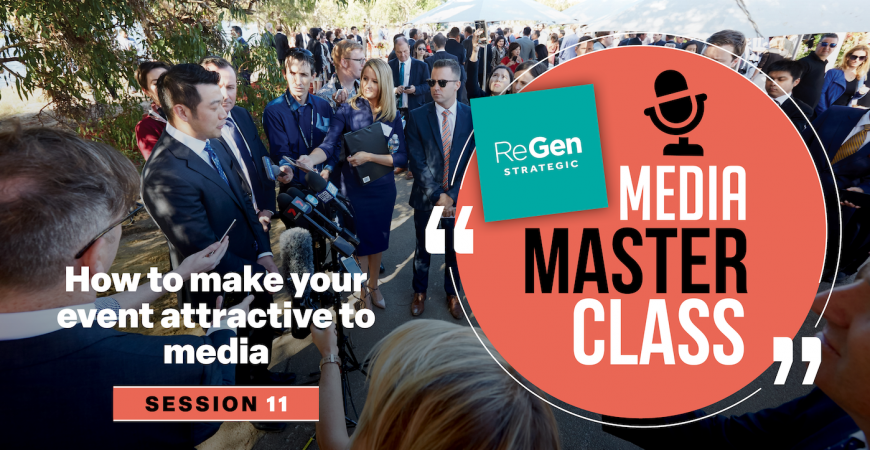Events play an important role in the media landscape – they can bring an issue into the spotlight or prompt public debate in the press, which can result in major reforms to policy or legislation.
On any given day, a number of events are competing for media attention and many organisers are wondering how to get media coverage for their events.
Some of these are spontaneous – for instance, a major natural disaster like the floods in the Kimberley last year or an unplanned change in government like when former premier Mark McGowan announced his retirement.
Most media events are a bit more predictable: the most notable include the release of state and federal budgets; local, state and federal government elections; major holidays like Christmas, New Year’s Day or Australia Day; or sporting events like the Melbourne Cup, AFL Grand Final, or the Ashes.
Even though there’s a plethora of outlets, platforms, radio stations and news sites, it’s often the case that only a select few media events attract the majority of coverage each day.
So, what can you do to get more media coverage for your event?
Set the date
The first step is to check the calendar: to avoid clashes with any major news events like those mentioned above, and to see if there are any relevant media events you can tie it to.
For example, if you’re announcing a new property development that will increase affordable housing capacity, you might hold it during Homelessness Week, when the issue is already garnering media interest.
If you’re not sure when the best date to hold a media event will be, you might consider engaging a media relations consultant so you don’t miss any opportunities to synergise with existing events.
Invite guests
Once you’ve found an appropriate date, an important step is to lock down the guest list. A launch event will have a great deal more appeal to the media if it is attended by a relevant senior government official, celebrity or a compelling case study who can highlight the human impact of your story.
Building on the example of a housing development launch, securing the attendance of the premier or the Minister for Housing, will significantly increase your event’s importance and credibility in the eyes of the media.
As an integrated consultancy offering media relations and stakeholder engagement services, ReGen Strategic can deliver a government relations strategy to help you build relationships to increase your odds of securing the attendance of your preferred guest.
Invite spokesperson
If you’ve picked the right date and you’ve secured the attendance of a high-profile spokesperson your media event still needs to be newsworthy on its own merits – which can be determined by its projected impact or the scope of the event.
A media relations advisor can help you identify key facts and figures that journalists would find interesting: what is the budget of the project, how many people or families would the development house, what impact would it have on housing supply in that area? This is the information you need to have on hand to demonstrate impact to media.
Create visuals
To maximise coverage across all platforms, another major factor to consider is visuals. Even though the sod-turning event is a time-honoured media tradition, an empty block of land, and a few shovel-wielding executives in hardhats don’t make for the most exciting footage for broadcast stations.
Consider finding creative ways to supply visuals, like creating a fly-through video or artist’s impression of your proposed development to bring the story to life.
Prepare to speak
While these steps are all important elements of a successful media event, another critical part of the planning is being prepared to address journalists on the day.
Even if you have secured a guest speaker, your company will still have the opportunity to make a statement and answer questions about your event.
Whether you’re an experienced media spokesperson or a complete newcomer to fronting the press, consider undertaking media training in the lead-up to the event.
For newcomers, ReGen Strategic stages realistic mock press conferences with our team of former journalists that serve as a dry run for the real thing.
For veteran speakers, media training provides an opportunity to review and refresh key messages that may need updating and get valuable practice honing your delivery.
You’re not the only one wondering how to get media coverage for an event and we can help. Contact ReGen Strategic for bespoke media training and assistance with planning your next media event.
 ReGen Strategic
ReGen Strategic